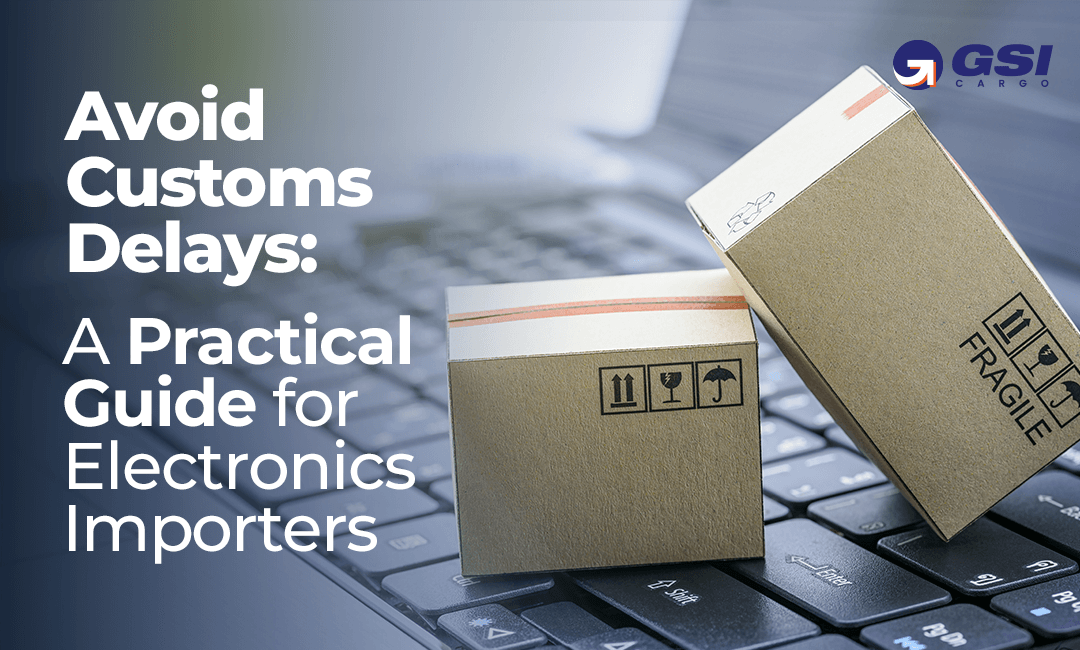Author: Gaurav Uppal LinkedIn
Disclaimer: This article is for general information only. For specific advice, always consult a licensed customs expert or government authority.
Introduction
If you’re in the business of importing electronics, you know time is money. A missing certificate or a small paperwork mistake can stall your shipment at customs—leading to delays, extra costs, and frustrated clients. This guide breaks down how to avoid common paperwork issues and keep your imports moving.
Why Paperwork Matters
Customs paperwork might feel routine, but even minor mistakes can create big headaches:
- Delays: Your shipment might sit at customs for days.
- Fines: Incorrect or missing documents can cost you.
- Storage Fees: You’ll pay for each day your goods are held.
- Returns or Destruction: Non-compliant shipments might be rejected or destroyed.
- Reputation Risks: Delays could hurt your client relationships.
Real Example: A major electronics brand in India recently waited three weeks for customs clearance—all because a BIS certificate was missing. The delay meant extra warehouse fees and a disappointed client.
Bottom Line: Paperwork isn’t just about rules. It’s about protecting your timelines and business relationships.
The Basics of Compliance
When you’re importing electronics—especially in India—there are strict rules to follow. Authorities want to ensure that products meet safety and environmental standards.
Key Documents You’ll Likely Need:
- BIS (Bureau of Indian Standards) Certificate
- LMPC (Legal Metrology Packaged Commodities) Certificate
- EPR (Extended Producer Responsibility) Authorization
- Bill of Lading
- Commercial Invoice
- Packing List
- Customs Declaration
- Certificate of Origin
- Import License (if applicable)
- Insurance Certificate
- Other relevant permits
Quick Tip: Keep a checklist handy and go through it before every shipment.
Common Reasons for Delays
Most customs hold-ups come down to a few repeat issues:
| Problem | What Could Happen |
|---|---|
| Missing or incomplete paperwork | Delays, penalties |
| Document mismatches | More inspections |
| No BIS/LMPC/EPR certification | Fines, rejection |
| Wrong customs declaration | Legal trouble |
| Unpaid duties/taxes | Shipment won’t clear |
| Poor coordination with customs broker | Longer processing time |
Bottom Line: Most of these problems can be avoided with a little prep.
A Closer Look at Key Certifications
BIS Certification
Confirms your products meet Indian safety standards. Without it, your shipment might be destroyed.
LMPC
Required for pre-packaged goods. Missing this? Expect fines and delays.
EPR Authorization
You’re expected to take care of your product’s e-waste. No EPR = No clearance.
Quick Tip: These rules change often. Stay updated with official sources
Choosing the Right Customs Broker
A good broker can make your life a lot easier.
What to Look For:
- Experience with electronics imports
- Up-to-date knowledge of BIS, LMPC, and EPR rules
- Strong communication with customs officials
Real Story: One importer cut clearance time by 30% just by switching to a broker who specialized in electronics compliance.
Tip: Don’t just go with the cheapest option. Go with the one who knows their stuff.
Steps to Avoid Delays
Let’s make this simple. Here’s what you can do:
| Step | Why It Helps |
|---|---|
| Use a checklist | Fewer mistakes |
| Stay updated on rules | Avoid surprises |
| Involve your broker early | Less last-minute chaos |
| Do quarterly audits | Catch issues before they grow |
| Use tracking tools | Keep everything in one place |
Quick Tip: Preparation saves you time, money, and stress.
FAQs
Why is my shipment delayed? Usually, there’s a paperwork issue—like a missing BIS or LMPC certificate.
How long does clearance take? Anywhere from a few hours to several days, depending on how complete your documents are.
What if my documents are wrong? Your shipment could be held, sent back, or destroyed. You might also get fined.
How do I avoid all this? Plan early, double-check paperwork, and work closely with your broker.
What does a customs broker actually do? They check your documents, handle communication with customs, and help you fix issues quickly.
Final Thoughts
Missing paperwork is the number one cause of customs delays for electronics. But the good news? It’s avoidable.
Use a checklist. Stay updated. And work with someone who knows the system.
That way, your shipments move faster—and your clients stay happy.
About the Author
Gaurav Uppal is a logistics expert with over 25 years of experience helping electronics manufacturers handle import regulations and paperwork the right way.
For more info, visit our About Page or follow Gaurav on LinkedIn.
Downloadable Resource
Pre-Arrival Customs Documentation Checklist (PDF)


 My GIA Now
My GIA Now
